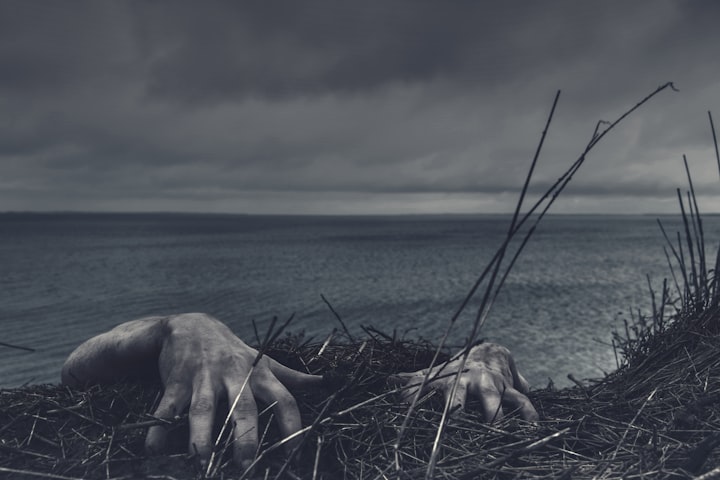5 Books recommended by Stephen King
Here is what the best-seller thriller author recommends.
Who is Stephen King?
Writing books for more than 4 decades, with worldwide sales of more than 350 million, he is one of the most successful fiction authors anywhere in the world today. Born on the 21st of September 1947, in Portland, Maine. He grew up in a family of five children with both his parents. His father was a merchant seaman who traveled the world, and his mother stayed at home raising the children.
Here are 5 books Stephen King recommends, with reviews from avid readers like me and you.
If you want to purchase any of the books listed below, click on the titles. They are affiliated links that will take you directly to the store.
2666: A Novel, by Roberto Bolaño
Roberto Bolaño's 2666 definitely changed the way I read fiction. I first read this massive posthumous tome years ago when I was still searching to uncover my own style and much of this novel lodged itself into the dark corners of my mind. There have been many times where I will be doing some thoughtless task and suddenly a nugget of truth from 2666 will pop into the forefront of my brain; to me, this is the ultimate litmus test for a good book—you can't shake it, even years later.
Bolaño's writing covers the spectrum of styles: dark and brooding, poetic and lyrical, dry and empty while still stunningly gorgeous. Not every one of the 900 pages inside 2666 is a drop-dead winner, but there is too much excellence here to even notice where it slightly falters. Some have argued that Bolaño's publisher should have released this big book as five separate novels as the author first intended, but I disagree; I like it as is: chopped up, messy, dirty, and scattered as all hell, like a diverse smorgasbord of literary delight.
The largely looming character throughout, Archimboldi, is as memorable as any other character from classic postmodern literature. By the time we get inside Archimboldi's head and experience his world after the long lead up, the reward is intensely satisfying. Like a benevolent version of McCarthy's "The Judge" from BLOOD MERIDIAN, Archimboldi is unforgettable.
Bolaño proves that plot *can* be overrated. Love triangles, mysterious murders in the desert, disappearing peoples, European academia, and the nature of war on the soul: it's all fair game for 2666. It's about everything and it's about nothing, and when done right, that's where some of our best stories can come from.
The Troop, by Nick Cutter
It’s a tale of science gone wrong a la ‘Frankenstein’,-the whole notion of ‘just because we can , doesn’t mean we should’ takes on a whole new meaning in the way that a government created parasite is accidentally set loose.
Stomach churning (no pun intended) scenes pepper the story of these boys who are the last bastion between them and us. You are hereby warned not to read this if you are faint of heart or queasy of stomach. The themes of being consumed could be seen as metaphorical, as well as literal body horror as the old seek to con sume the strength and flesh of the young, whilst the boys , rushing to grow up are thrust into a situation they are not emotionally euqipped to deal with.
This is borne out in the psychiatric reports as well as the hysterical media headlines which in a panic driven state seek not only to make money from a scandalous trip gone wrong, but also trying to make some kind of sense of the survivors tales.
Is the fate of the world left in the hands of 14 year old boys?
In this case I would absolutely award them the following badges-
- Dismemberment
- Butchery
- Leadership Skills
- Apocalypse Survival
- Anatomy and Physiology
It’s a great companion piece to novels like ‘The Rats’, and is a proper ‘old school’ horror of the kind that was produced in the early 80’s. Be warned, and take a Swiss Army knife with you as well as at least one flare if you fancy an outward bound trip with these lads and remember, every good scout is ‘always in a state of readiness in mind and body to do your duty’
American Gods, by Neil Gaiman
I read this book, years ago. I remembered almost nothing about the book except that it blew me away. I recently saw the TV show on Amazon and thought it was amazing and it made me want to read the book again.
American Gods is awesome. I mean, sincerely, awesome. I loved it. I loved every word. This is one of the best books I’ve ever read. Did I mention it was awesome yet? Buy it and read and love it and worship it. The book is awesome-sauce. I can’t believe I just wrote that.
I loved the way Gaiman takes so many different myths, some older than others, some I’ve never heard of and uses them as a basis for something so original and interesting. I’m very impressed.
The ending of American Gods is not what I expected at all. When Shadow finds out the real deal and why Wednesday chose him, I was taken completely by surprise. I read the book more than 10 years ago and my memory is hazy. At first, I felt cheated, then and I thought, wow, I like where the story went. Sheer brilliance.
HEX, by Thomas Olde Heuvelt
This was one of the more surprising books I've read this year, in that its probably one of the most solid horror novels of 2016 yet it hasn't received that much fanfare. I wouldn't have heard of this if I hadn't seen it in a friend's Facebook feed and it looks like much of its readership comes more from word of mouth than an intense media marketing campaign. That's good in some ways but bad in others, as this very much deserves more readers than it has received.
What impressed me so much about this book was how much it relied on human evil as opposed to supernatural evil. There's a definite supernatural presence, so much so that the townsfolk have learned how to adapt their lives to the constant presence of the Black Rock Witch, to the point where it actually ends up making some of the townspeople complacent. I will try not to elaborate too much at the risk of spoilers, but it's likely the adults' begrudging acceptance of "this is how it is" that causes the teenagers to start recording and even taunting the Black Rock Witch. It's natural for children to try to see how far they can bend or break the rules as a way of challenging authority and while they know that the witch is deadly, they've also grown up with the knowledge that not much (if anything) will happen as long as you don't touch her, listen to her words, or undo any of her bindings. That leaves a lot open to interpretation. Another thing that intrigued me is that the witch isn't entirely portrayed as this horrible evil thing. This I can't really spell out without spoilers, but I will say that Olde Heuvelt does try to show that life does not deal in absolutes and that actions can have an impact on outcomes.
The Nix, by Nathan Hill
This book is six hundred pages. Here's some topics it covers: video game addiction, war protesting, gentrification, social media expression, pedophile principals, crooked cops, consumerism, morality of war, immigration, outdated gender roles...that's probably ten percent of its range, and I'd have taken more. If the quality were sustainable, I'd have read 6,000 pages, and this top ten list could then just be a single bullet point that was actually a heart emoji. I've recommended this at least a hundred times since I read it. My wife read it simply so I would stop badgering her to read it. It's amazing. Here's my favorite quote from an advertising agent explaining an ad that is simply a picture of a potato chip and two words: SNACK ROUTINE.
“Think about it. Why does one eat a snack? Why is a snack necessary? The answer—and we’ve done a million studies on this—is because our lives are filled with tedium and drudgery and endless toil and we need a tiny blip of pleasure to repel the gathering darkness. Thus, we give ourselves a treat. “But here’s the thing,” Periwinkle continues, his eyes all aglow, “even the things we do to break the routine become routine. Even the things we do to escape the sadness of our lives have themselves become sad. What this ad acknowledges is that you’ve been eating all these snacks and yet you are not happy, and you’ve been watching all these shows and yet you still feel lonely, and you’ve been seeing all this news and yet the world makes no sense, and you’ve been playing all these games and yet the melancholy sinks deeper and deeper into you. How do you escape?” “You buy a new chip.” “You buy a missile-shaped chip! That’s the answer. What this ad does is admit something you already deeply suspect and existentially fear: that consumerism is a failure and you will never find any meaning there no matter how much money you spend. So the great challenge for people like me is to convince people like you that the problem is not systemic. It’s not that snacks leave you feeling empty, it’s that you haven’t found the right snack yet. It’s not that TV turns out to be a poor substitute for human connection, it’s that you haven’t found the right show yet. It’s not that politics are hopelessly bankrupt, it’s that you haven’t found the right politician yet. And this ad just comes right out and says it. I swear to god it’s like playing poker against someone who’s showing his cards and yet still bluffing by force of personality.”
About the Creator
Borba de Souza
Writer and business founder that enjoys writing about history and culture.
Founder of Small Business Hacks https://www.youtube.com/c/SmallBusinessHacks and https://expatriateconsultancy.com. My published books: https://amzn.to/3tyxDe0






Comments
There are no comments for this story
Be the first to respond and start the conversation.